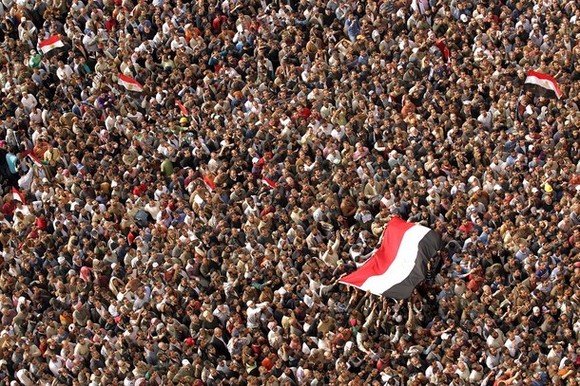
Twenty-six political parties and protest movements said in a joint statement their three-week sit-in had succeeded in achieving some of their demands, "pushing the Egyptian revolution a step forward."
"But based on our belief that sit-ins are a means, and not a goal... the political parties and youth movements have decided to temporarily suspend their sit-in during the holy month of Ramadan," they said.
They stressed that they "will return once again after the Eid (feast marking the end of Ramadan) to protest peacefully in Tahrir Square so that the rest of the demands are met."
Protesters who first took to the streets to demand Mubarak's resignation have continued protesting to demand an end to the military trials of civilians, the speedy prosecution of former regime members guilty of abuse, and the redistribution of wealth.
Field Marshal Hussein Tantawi, head of the ruling Supreme Council of the Armed Forces (SCAF) and Mubarak's long-time defence minister, pledged in a television address to work for a free system through fair elections and a constitution.
But the military rulers have accused the Tahrir protesters -- singling out the April 6 movement -- of driving a wedge between the people and the army.
Protesters have accused the SCAF of stalling reforms and of using Mubarak-era tactics to stifle dissent.
The military council has also come under fire from local and international rights groups for alleged rights abuses.
The holy month of Ramadan, during which Muslims abstain from food and drink from sunrise to sunset, begins on Monday in Egypt.
------------------------------------------------------------------------------------
"But based on our belief that sit-ins are a means, and not a goal... the political parties and youth movements have decided to temporarily suspend their sit-in during the holy month of Ramadan," they said.
They stressed that they "will return once again after the Eid (feast marking the end of Ramadan) to protest peacefully in Tahrir Square so that the rest of the demands are met."
Protesters who first took to the streets to demand Mubarak's resignation have continued protesting to demand an end to the military trials of civilians, the speedy prosecution of former regime members guilty of abuse, and the redistribution of wealth.
Field Marshal Hussein Tantawi, head of the ruling Supreme Council of the Armed Forces (SCAF) and Mubarak's long-time defence minister, pledged in a television address to work for a free system through fair elections and a constitution.
But the military rulers have accused the Tahrir protesters -- singling out the April 6 movement -- of driving a wedge between the people and the army.
Protesters have accused the SCAF of stalling reforms and of using Mubarak-era tactics to stifle dissent.
The military council has also come under fire from local and international rights groups for alleged rights abuses.
The holy month of Ramadan, during which Muslims abstain from food and drink from sunrise to sunset, begins on Monday in Egypt.
------------------------------------------------------------------------------------









 Home
Home Politics
Politics









